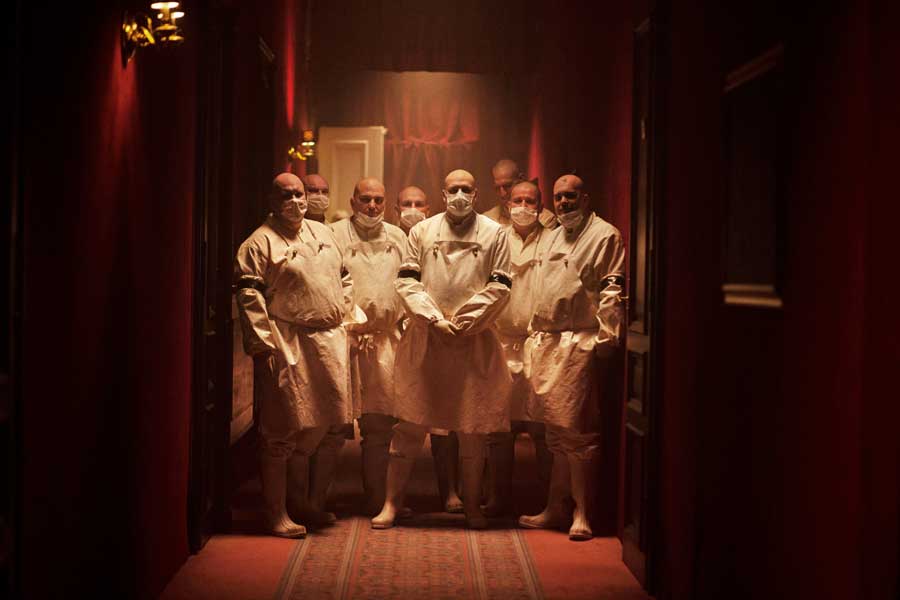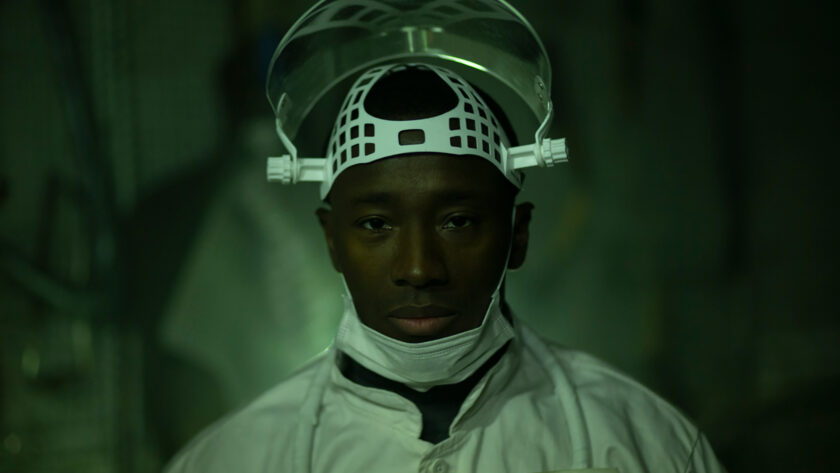Alexander Hancock considers whether this Norwegian thriller has the potential to stand out from Netflix’s ever growing collection.
With the postponement of 2020’s most anticipated blockbusters and the mighty fall of theatre giants like Cineworld, the gaping hole in the film industry has grown rapidly. Among other streaming services, Netflix has seized its opportunity to fill this tremendous void with film after film; a running faucet of movies that doesn’t seem to be slowing down anytime soon. With this has come widely viewed films with high-profile casts, such as the gothic thriller The Devil All The Time, and Enola Holmes, starring Netflix favourite, Millie Bobby Brown. Alongside these juggernauts, we’ve seen smaller releases that may fill our fleeting needs for escapist rom-coms and fast-paced thrillers, but their presence on Netflix’s coveted carousel lasts only a few short days. Then there are the unexpected successes; the unconventional releases that manage to climb their way to the top ten list against all odds (see The Platform). Could Netflix’s new Norwegian thriller, Cadaver, be the streaming behemoth’s next unforeseen hit?
After a nuclear calamity decimates Norway, Leonora (Gitte Witt), her husband Jacob (Thomas Gullestad), and their young daughter, Alice (Tuva Olivia Remman) are forced to scavenge for food amongst the cauterised land, where thick ash coats the streets, and buildings lay crumbled. Sequestered in the confines of their small apartment, the family faces an increasingly dire future, where food is sparse and roadways are covered in corpses. Living off of scraps and hiding away from desperate survivors who will go to any length to stay alive, all sense of hope or optimism is extinguished by the bleakness of the outside world. That is, until they’re offered tickets to a dinner theatre at the city’s abandoned hotel, by an eccentric and slightly sinister promoter who promises a night of entertainment and, more importantly, food. Despite initial fears surrounding the legitimacy of the event, the family agrees to go out of sheer despair.
![Netflix's Norwegian Horror Movie 'Cadaver' Invites You into a Mysterious Hotel This October [Trailer] - Bloody Disgusting](https://bloody-disgusting.com/wp-content/uploads/2020/09/cadaver.jpg)
The hotel is the complete antithesis of the desolate landscape that exists outside its doors, with its plush red carpets, opulent chandeliers and grand staircases. As each guest files in, they’re given a gold mask to wear so as to distinguish them from the actors of the play. The performers roam freely through the hotel and encourage the audience to explore each floor and every room, in a fully immersive spectacle. Alarm bells start ringing though, when platters of meals are laid out in front of every guest, despite the throngs of starving people that have populated the streets since the nuclear disaster. Taking the words right out of the viewers’ mouths, one of the guests utters, “It’s almost too good to be true”. What follows are hidden underground passageways, secret doors behind artwork, and suspenseful sequences set in eerie antique-filled rooms. After the disappearance of Leonora and Jacob’s daughter, the lines between what is real and what is fiction, start to blur.
An unnerving atmosphere suffuses Cadaver from the from the very first scene. From the cold, post-apocalyptic ruins of the Norwegian city, to the simultaneously lavish and dilapidated interior of the hotel, the gothic visuals match the chilling mood of the film. Slow zoom-ins, low-key lighting, and drawn out periods of silence are used frequently throughout, much to the success of the film. Visually, the film takes cues from horror predecessors like The Shining and Suspiria, using long corridors and patterned rugs to create vast, open spaces where anything or anyone could jump out at any second. The director, Jarand Herdal, imbues the film with clues and symbols; strange paintings and lost earrings that both foreshadow future events and call back to previous scenes: upon a second viewing, small details which highlight the intricacy of the plot can be found.

Much like the aforementioned The Platform, Cadaver aims to consider the big questions: What extremes does one go to in a world where morality is lost? Can our actions ever be justified in protecting our loved ones? Is entertainment just mindless distraction from the suffering of the outside world? But unlike the simplicity ofThe Platform with its small cast and single setting, Cadaver is much more complex, attempting to cover a multitude of big concepts in very little time. From questions ranging to existentialism, to what separates humans from animals, the director’s narrative focus seems at times confused and muddled, much like the maze of passageways and corridors in the hotel.
This is perhaps the greatest weakness of Cadaver. Its ambitious exploration of humanity’s darkest facets, represented by the individual plays taking place in each hotel room, feels rushed. Certain intriguing plot points are introduced, but as soon as the narrative appears to be sinking its teeth in, a gratuitous jump scare or a secret trap door derails the focus of the story. Yet what it lacks in cohesion, it makes up for in a truly unique story whose meditations on maintaining one’s morality in a lawless land raises some thought-provoking questions.
Whether it will surge to the top of Netflix will reveal itself with time, but for those who watch Cadaver, the film’s lingering questions and ambiguous ending will be felt long after the credits roll.




